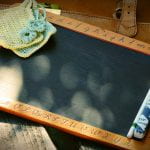
congerdesign / Pixabay
The term information literacy is difficult to define. UNESCO.(2006) describes the traditional definition of moving from a process of acquiring basic cognitive skills, moving towards a definition that includes social awareness and critical reflection. (p.147) These added factors move learning to a deeper level of cognitive thought.
*There is no information literacy policy at the school where I work. It is only this year that a Scope and Sequence for the library was drawn up by my colleague and I. The Information Literacy policy is on our ‘to do’ list. I am very pleased we haven’t started developing our policy before I found the link in our notes in module 6 from ASLA titled, Manual for Developing Policies and Procedures in Australian School Libraries. This guide is brilliant! It even includes a template of headings for TL to ‘fill in.’ I feel like our task is considerably easier.
*Information literacy at our school varies depending on the grade and experience of the teacher. Guided Inquiry is a keen focus in science however class teachers tend to have a more traditional approach to information gathering.
*Digital citizenship was taught well to our stage 3 students a few years ago before a previous teacher retired. Casual teacher librarian staff up until last year have barely scratched the surface in this area, however they were ‘flying blind’ with no scope and sequence guidance. We have reintroduced a program on Digital Citizenship, however we are trialling which topics for which grade are suitable for our students.
*Transliteracy is in a random experimental phase at our school. Year 5 are using Google Forms for spelling tests, K are trialling Seesaw for home/school communication, a few classes are using Google Classroom for various tasks. Office 365 has been used by year 3 to write collaboratively. Various apps are used for maths and English work. Year 5/6 are playing with the new Chromebooks. All of these uses by class teachers can be a source of information gathering for my colleague and I as we consider how we will formulate an information literacy policy in the future. As yet we are not sure how much detail to include. We do need to gather more information before we put pen to paper…
Australian School Library Association (ASLA). (2016). A manual for developing policies and procedures in Australian school library resource centres.
UNESCO. (2006). Understandings of literacy. Education for all: Literacy for life. Retrieved from http://www.unesco.org/education/GMR2006/full/chapt6_eng.pdf (26/4/2019)

Leave a Reply